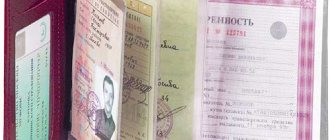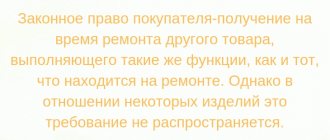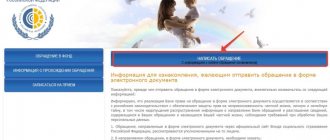Author of the article: Lina Smirnova Last modified: January 2021 8695
In order for the heirs to receive the property due to them after the death of a citizen, they must confirm their right to this inheritance. Therefore, the loss of an important document, especially if it is a will, can cause many problems. What to do if the will is lost, is it possible to restore it, what ways to find and restore it exist if the document is lost by the testator and the intended heirs. All these questions will be discussed in this article.
What is the purpose of a will?
People, especially older people, often wonder who will get their property. A guarantee of fair distribution of property after death, in their opinion, is a written declaration of will to transfer it into the ownership of those who are dear to them. A document that reflects the instructions of the owner of property regarding its distribution after his death is called a will.
Thanks to this document, the owner of the inheritance can divide the property not in accordance with the procedure established by law, but at his own choice, in accordance with his will, as an owner.
Expert commentary
Leonov Victor
Lawyer
If, according to the law, the heirs can be predominantly relatives of the deceased person in accordance with the degree of their relationship, then a will can be drawn up for any citizen at the discretion of the testator. The law limits the choice of inheritance recipients to only a list of obligatory heirs who, regardless of the will, have the right to its obligatory share.
Where to go
A person claiming inheritance must contact a notary. For this purpose, a period of 6 months from the date of death of the testator.
Documents must be submitted at the place where the inheritance was opened:
- at the registered address of the deceased person (if known);
- at the place where the will is kept;
- at the location of the real estate;
- at the location of the most valuable property.
If there are several notaries working in the area, then you can call each of them and find out who exactly will open the case. Contact information can be found on the Internet on the website of the Federal Notary Chamber or found in one of the notary offices.
After the expiration of the period established by law, the heirs will have to go to court (Article 1155 of the Civil Code of the Russian Federation). Grounds for reinstatement:
- the heir did not know the death of the owner. For example, a person lived in the territory of another state or did not maintain contact with a deceased relative;
- the citizen completed military service upon conscription;
- the heir was undergoing long-term treatment and other valid reasons.
Procedure for drawing up and storing a will
A will is a transaction drawn up unilaterally, which, according to Article 1124 of the Civil Code of the Russian Federation, is subject to certification by a notary.
To draw up a will, a citizen needs:
- come to a notary whose office is located close to his place of residence or the location of the objects of inheritance. It is also allowed to contact any other notary without reference to your place of residence;
- show him your passport and title documents for the property that he is going to bequeath;
- prepare a document with the help of a notary or present him with a pre-prepared draft will, which he must check for compliance with the law and confirm with his signature.
The will is drawn up by the testator in his own hand in two copies. One original document is handed over to the testator himself, and the second remains for safekeeping with the notary. The notary also enters information about the document into the unified electronic register of notarial transactions.
In exceptional life circumstances, it is possible to draw up a will without the participation of a notary. For example, if the testator is in a hospital, the chief physician or other administrative person of the hospital has the authority to certify the document. The serviceman can confirm it with a higher commander. It is important that after registration, the document does not remain with the persons who certified it, but is sent through the notary control authorities to the notary who will conduct the inheritance case.
Notarization of electronic documents
Russian legislation allows notaries to certify electronic documents. This means that a person will be able to draw up a power of attorney, agreement or other document not only on paper, but also in electronic form, and then transfer it to the recipient in a matter of minutes.
In what cases is a notarized power of attorney required in electronic form?
- Quickly transfer documents to another city. You can notarize an electronic document and send it by email to the recipient.
- Protect documents from risks associated with storing and using paper documents. An electronic document stored in cloud storage is more difficult to damage or lose. Moreover, it will have the same legal force as a paper one.
- Reduce archive size. Instead of several shelves with folders for electronic documents, a flash drive or space in the cloud is enough.
How does the certification procedure work?
According to Article 44.2 Fundamentals of the legislation of the Russian Federation on notaries (as amended by Federal Law No. 391-FZ of December 29, 2015), the procedure for notarial actions in electronic form looks like this:
- The notary verifies the identity of the applicant. To do this, you will need to present your original passport.
- Then it scans the paper document, observing the current technical requirements of the Russian Ministry of Justice. Please note that the notary does not check the correctness of the contents of the paper document, he only confirms the equivalence of the paper and electronic versions.
- The notary creates a qualified electronic signature in the format of a detached signature using a scan of the document. That is, the signed document and the signature to it will be saved in different files.
- If the document format requires the signature of the applicant (for example, a power of attorney to perform actions on behalf of the applicant), he must also sign the document with his qualified electronic signature.
- An electronic document and its signature are recorded on any medium (for example, a flash card) or sent to the desired e-mail.
What documents can be certified by a notary?
The law prohibits converting into electronic form only those documents that prove identity, for example:
- passport,
- driver's license, etc.
All other documents can be certified, for example:
- birth certificate,
- licenses,
- insurance documents,
- power of attorney for the right to act on behalf of the principal, etc.
Such an electronic document is allowed to be used in all instances in the same way as the paper version. You can check the validity of the electronic signature certificate with which the document was signed using special programs, including free ones.
The validity of any notarized power of attorney issued in Russia since the beginning of 2021 can be checked in the official Register of Powers of Attorney.
Get a qualified electronic signature for a notarized power of attorney
To the list of 5 “don’ts” for government procurement participants Find out how to avoid them in a manual from our experts Get a 5 “don’ts” manual for government procurement participants
Leave your email to receive the manual
How do heirs find out about the will?
A will comes into effect only after the death of the testator. Before this event, none of the citizens involved in its preparation can disclose it, except the testator himself, unless the will is closed and is prohibited from disclosure by him. A closed will is sealed in an envelope in front of witnesses and handed over to a notary for safekeeping, who seals the envelope with his seal. None of those present should know about the content of information in the document until the testator dies.
To avoid misunderstandings later, if the type of will allows it, it is better for the testator to inform the heirs of its existence during his lifetime. He can transfer photocopies of the will directly into the hands of the heirs for safekeeping, or inform them which notary it was drawn up with, and agree to receive a copy of the document in case of loss.
Important! No one can receive a duplicate of the will before the death of the testator without his consent, because this is prohibited by Article 1123 of the Civil Code on maintaining the secrecy of a citizen’s expression of will.
It may happen that the heirs are not informed about the existence of a will, and the testator himself has lost it or forgotten where this document is kept. Also, the document that the testator handed over may be lost by the heirs.
Expert commentary
Shadrin Alexey
Lawyer
In any case, if there is no will in hand and there is a suspicion that it exists, or awareness of its existence, a search for it will have to be carried out after the death of the testator.
What to do if the certificate of inheritance is lost
There is a standard rule according to which an application for a duplicate order is made to the person who issued the lost paper. Since the last will order is drawn up by a notary, you should contact him.
The fact is that all actions performed by notaries are entered into a special register and in Russia there is a single database of all these actions.
That is, information about an order that is lost will be stored in such a database. Based on this information, the applicant will receive a duplicate.
It is drawn up in a clearly established form and has the same meaning as the original testamentary instrument itself.
First of all, you need to indicate the documents for restoring the will . Preparation and submission of documents is important. Since if they are not collected completely, the issuance of a duplicate will be refused. This action may entail a violation of the deadlines for entering into the right to property.
Such papers include the following:
- A personal passport of the citizen who is applying is required;
- An application will be required. It should indicate the date the loss was discovered and the circumstances;
- A document certifying the death of the testator must be provided;
- The fact of family ties must be confirmed. Since a testamentary act can be drawn up in relation to any person. Therefore, the presence of such paper is not mandatory. After submitting the required papers, they are examined in the notary chamber and a duplicate is issued.
Inheritance law in Russia provides a specific list of documentation required to formalize the right of inheritance. It includes:
- paper proving the death of the testator;
- heir's passport;
- paper confirming the relationship of the deceased and the heir;
- a paper confirming the right of ownership of the apartment from the testator.
If you do not have a document on ownership, then information about the owner of the real estate can be requested from Rosreestr. This is done by ordering an extract from the unified state real estate register. It displays the cadastral layout from the BTI and the will. Such an extract can be obtained by a private person after paying the state fee.
Let's take a common situation as an example. Let's assume that you are the heir to the apartment of one of your parents, but you have not lived with him for some time. The parent has died, and you need to inherit this living space, but you do not have a single document to complete this procedure. What to do in such a situation?
In this case, you need to adhere to the following algorithm of actions:
- You need to go to the notary office closest to the last place of registration of the deceased. A notary dealing with inheritance matters will help you obtain the necessary information about the inheritance.
- You need to determine which successor line you belong to. In this case, since you are the child of the deceased, you will be recognized as the heir of the first priority. This means that even in the absence of a corresponding will from a parent, you have every right to inherit the entire apartment or its share, if you have siblings.
Sources
- Zakharova Tatyana Monetary and financial mechanism for transforming the Russian economy in the direction of its reorientation towards maximizing the synergetic effect; Dashkov and K - M., 2009. - 338 p.
- Occupational safety in questions and answers No. 9 2014; MCFR - M., 2014. - 992 p.
- Nikolay Yakovlevich Sokolov Professional culture of lawyers and legality; Prospect - M., 2008. - 101 p.
- Product quality control No. 5 2014; Standards and quality - M., 2014. - 489 p.
- General military regulations of the Armed Forces of the Russian Federation with amendments for 2021. With the Military Police Charter; IL - Moscow, 2017. - 711 p.
Procedure for the loss of a will by the testator himself
Let's look at how to restore a will if it is lost by the testator himself. Having discovered the loss of a document, the testator can proceed as follows:
- contact the notary with whom he executed the will and ask him for a duplicate of the document. Article 52 of the legislative framework on notaries allows for its registration. A duplicate certified by a notary is equal to the original document.
- draw up a new testamentary document. He can do this on the basis of Article 1130 of the Civil Code of the Russian Federation, while the new will automatically cancels the validity of the document drawn up earlier. To avoid misunderstandings, it is necessary to indicate in its text that the will was drawn up to replace the previous document. Otherwise, it may happen that some clauses of the previous document remain in force.
Arbitrage practice
As practice shows, if you have not found a will, in order to restore your rights under the will you need to meet the deadline , and if you cannot, then at least give a good reason.
The Krasnoyarsk court refused to restore the deadline for plaintiff Borisova to enter into an inheritance under a will - she really did not know about the death of her grandmother, but solely because she deliberately avoided contact with her and put her on the “black list” on her phone.
A similar situation was in the Ulyanovsk region. The son of the deceased, when asked why he remained silent for six months after his father’s death, replied that he simply did not know what the law said on this matter.
When the will of the deceased Krasnoyarsk businessman Petrov was opened, the relatives were surprised - it was not at all what he wrote two years before his death.
Then the administrative document indicated all three of Petrov’s adult children. However, now it turned out that everything was going to his child from his mistress, who suddenly revealed her incognito identity.
The businessman’s eldest son, Alexei, hired a lawyer who brought experts to court who confirmed that the new will was signed by the mistress herself. This option was declared invalid, and the inheritance was distributed according to the previous option.
Sources
- https://lawinfo24.ru/heritage/heir/uteryano-zaveshhanie
- https://allo-urist.com/chto-delat-esli-zaveshhanie-uteryano/
- https://vsenaslednikam.ru/chto-delat-esli-poteryali-zaveshhanie.html
- https://runasledstvo.ru/mozhno-li-vosstanovit-uteryannoe-zaveshhanie-i-kak-eto-sdelat/
- https://law-divorce.ru/chto-delat-esli-zaveshhanie-uteryano/
- https://urist.club/nasledstvo/sposob-prinaytiay/zaveshhanie/oformlenie/vosstanovlenie.html
- https://ros-nasledstvo.ru/chto-delat-esli-zaveshhanie-uteryano/
- https://firma-pravo.ru/zaveshhanie/kak-vosstanovit-zaveshhanie-esli-ono-uterjano.html
[collapse]
Restoration of the will by the heirs
Presumptive heirs will have to deal with inheritance issues immediately after the death of the testator. If a will is lost after his death, they need to start searching for it as soon as possible, because... This document must be presented when claiming inheritance rights. The law allows a period of 6 months for this.
To find a document, the heirs must:
- first, search for the will among the documents kept in the testator’s house;
- then turn for help to the notary who, according to their assumption, drew up the will, presenting him with your passport, the death certificate of the testator, documents confirming the relationship with him (if the applicants for the inheritance are relatives);
- when the notary has no information about the will, you should look for it in the Unified Information System of the Notary (Unified Information System of the Notary). An electronic system for recording notarial acts was launched in 2014. Therefore, information is available only for those wills that were drawn up starting from this period.
Consequences of loss of order
After drawing up a will, the testator can transfer it to the heirs, the executor (manager) or keep it for himself. The last option is fraught with consequences. For example, if the testator dies, his successors may never know about the existence of the disposition. Therefore, if there is no original will, they will not be able to enter into inheritance rights.
Similar consequences occur if the testator loses the will and does not have time to obtain its duplicate. After all, quite often relatives find such documents in the personal papers of deceased family members. If the will was lost, then it will not be possible to find it. Under such circumstances, inheritance of property occurs within the framework of the law . The first in line are the family members of the deceased subject: parents, second spouse and children (Article 1142 of the Civil Code of the Russian Federation). If the heir under a lost will is included in their composition, then he accepts the property equally with everyone else - the applicants are entitled to the same share.
If the applicant belongs to the second line of kinship, and the will is lost, then he may lose his inheritance completely. The exception is the absence of priority legal successors or refusal of inheritance on their part (Article 1158 of the Civil Code of the Russian Federation).
An alternative way to solve the problem is to actually accept the inheritance. However, this option only applies to family members or in the absence of other applicants. If the heir under the lost will is a distant relative, then if there are family members, he is excluded from the list of applicants. To search for a will, such a person is given 6 months - the period for entering into inheritance rights. If you do not meet the six-month period, you will need to restore the deadline for accepting an inheritance under a will.









